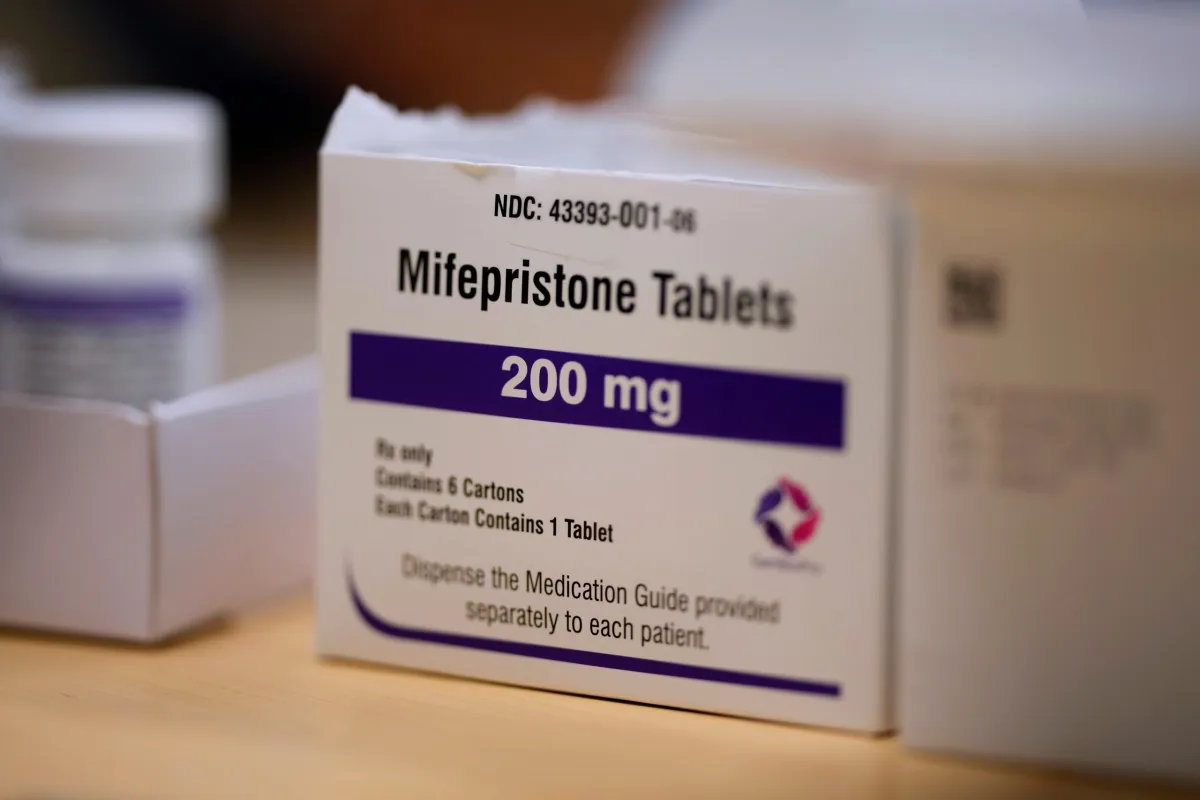- Michigan’s Republican Congressional delegation is pushing the US FDA to end a 2023 policy that enables sending abortion drugs by mail
- The GOP lawmakers contend the drugs should only be issued by doctors in-person, for safety purposes
- That could limit access in Michigan, where Planned Parenthood closures have left thousands without a nearby clinic
LANSING — Michigan Republicans in Congress are calling on the Trump administration to “immediately reinstate” a requirement to only allow abortion-inducing medication prescriptions in-person, ending a Biden-era policy that allowed for mail-order pills.
Mifepristone use is growing, and “the Biden FDA’s reckless, no-contact, mail-order abortion scheme is to blame,” GOP lawmakers said in a letter to Health Secretary Robert F. Kennedy Jr.
The letter came nearly two months after Kennedy and the US Food and Drug Administration launched a review of the increasingly common abortion pills.
Abortion remains legal in Michigan, but prohibiting mail-order medications could limit access for residents in parts of the state, especially rural communities with few clinics. Earlier this year, Planned Parenthood of Michigan announced the closure of three of its facilities, leaving no in-person providers of abortion services in the Upper Peninsula — covering 15 counties and over 300,000 people.
The letter asking the Trump administration to stop mail-order abortion pills was signed by 175 Republicans in Congress, including all seven from Michigan: US Reps. Tom Barrett of Charlotte, Jack Bergman of Watersmeet, Bill Huizenga of Zeeland, Lisa McClain of Bruce Township, John Moolenaar of Caledonia, Tim Walberg of Tipton and John James of Shelby Township, a frontrunner in the 2026 gubernatorial primary.
Related:
- Michigan stopped collecting abortion data in 2023. GOP wants to resume it
- Michigan’s latest and last abortion report: Abortion increases 3.7%
- Planned Parenthood’s Michigan closures leave UP without an abortion clinic
Limiting access to the pills would be the latest in a series of federal moves to repeal or tamp down on abortion following the overturning of landmark US Supreme Court case Roe v. Wade in 2022.
As part of the letter, Republicans also asked the US Department of Health and Human Services to “aggressively” investigate what they say are “deleterious and grossly underreported effects” women experience after taking mifepristone.
Referencing an April 2025 study from the Ethics and Public Policy Center, a Washington DC-based conservative think tank, the group notes that one out of every 10 women who takes mifepristone experiences “at least one serious adverse event” including sepsis and infection.
“These drugs are sent across state lines with no physician oversight, and without appropriate screening to ensure that bad actors are not secretly poisoning women without their knowledge or forcing women to take abortion drugs against their will,” lawmakers wrote.
Experts at the Guttmacher Institute, a national research group that aims to advance reproductive rights, have dismissed the study as part of a “misinformation campaign” motivated by politics, rather than science.
Ashlea Phenicie, chief external affairs officer with Planned Parenthood of Michigan, called the letter “nothing more than a craven political attack on abortion access.”
“Medication abortion is incredibly safe, including via telehealth,” Phenicie said in a statement. “Blocking the mailing of mifepristone would cut off access to safe and effective medication for thousands of Michiganders, force people to travel long distances to health centers for care and create unnecessary barriers and delays in needed health care.”
Mifepristone is generally safe to use, according to the FDA, which initially approved the drug more than 20 years ago “based on a thorough and comprehensive review of the scientific evidence.”
The pill is part of a two-drug regimen that induces an abortion. It blocks the body from creating progesterone – a hormone used to continue a pregnancy – while a second drug, misoprostol, is then taken within 48 hours to induce bleeding and cramping, which will empty the uterus similar to a miscarriage.
The FDA issued a final decision on its risk evaluation and mitigation strategy for mifepristone in January 2023, removing the in-person dispensing requirement for the drug.
That same decision also added a new pharmacy certification process which allows retail pharmacies to dispense the drug with prescription from a certified prescriber, according to guidance from the American College of Obstetricians and Gynecologists.
Research shows there can be complications from taking mifepristone to end a pregnancy, though doctors insist these instances are rare when the pill is taken in the first trimester.
The drug combination of mifepristone and misoprostol is used in more than half of abortions in the United States and in Michigan.
In 2021, 15,367 abortions in Michigan, just more than 51 percent, were “medical,” or nonsurgical, according to the Michigan Department of Health & Human Services.
There was an attempt to outlaw mifepristone altogether in 2023, though the US Supreme Court threw out that challenge after determining the party which brought the suit did not have any real standing, other than wanting “to make a drug less available.”
Michigan voters chose to keep abortion legal in the state by approving a
2022 ballot initiative that protected access to the procedure within the state constitution. Subsequent litigation has since overturned a state law that women wait 24-hours before obtaining an abortion, among other things.
Business Watch
Covering the intersection of business and policy, and informing Michigan employers and workers on the long road back from coronavirus.
About Business Watch
Subscribe
Share tips and questions with Bridge Business Editor Paula Gardner
Thanks to our Business Watch sponsors.
Support Bridge’s nonprofit civic journalism. Donate today.
This must be the credit given on each article: Put at bottom of each article in small print
“This story was originally published by Bridge Michigan (bridgemi.com), a nonprofit and nonpartisan news organization. To get regular coverage from Bridge Michigan, sign up for a free Bridge Michigan newsletter here (https://bit.ly/BridgeMichiganNewsletter).”
Use photos as well and credit photos. Simply copy and paste name and put: Photo Credit: John Doe

